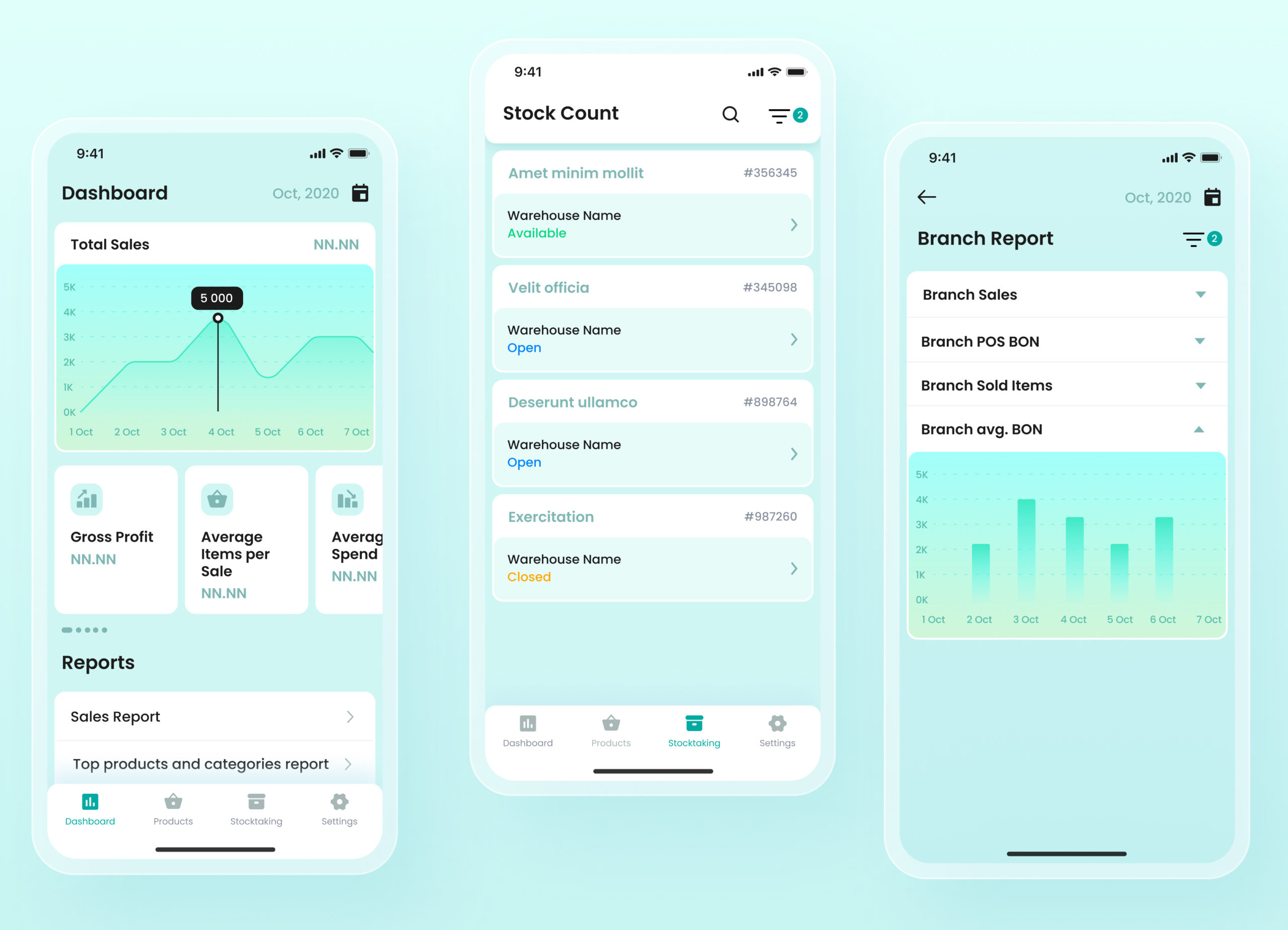Table of Contents
When the startup is born, its founders are bound to encounter dozens of difficulties. Technology development is one of the most challenging topics at any stage of startup development.
For many startups, software development outsourcing becomes the most convenient option, so they initiate cooperation with a certain software development company.
Though outsourcing for startups has a lot of benefits, it still demands careful assessment and management. However, it’s not always possible, especially for newbie startup founders.
Usually, the mistakes are pretty common, and hence, it makes sense to contemplate and study them.
Software Startup Mistakes You May Face While Outsourcing Software Development
In fact, there are different challenges you will face when founding a startup and two years after.
In the early stages, it is essential to develop a product and test it in the shortest period of time and with cost-efficient budgeting. In the scaling-up stage, startups need to build stable development and business processes, ensure knowledge transfer, and structure the team and its responsibilities.
As you can guess, every stage implies different approaches and different solutions.
Challenges of Outsourcing Software Development for Newly Created Startups
In the very beginning, most startups go blind and try to find and claim their place on the market. There are a lot of aspects the founds should cover: from choosing the right business model and core proposition to assembling a dream team and building business processes.
Cooperating with outsourcing software development is usually also a new area for the team, hence, there are a lot of things that could go wrong. Here are the most common issues that can make young startups fail.
Failing to Build Adequate Communication
Even with two top-tier companies, failed communication may destroy any chances for success. And we are not only talking about language barriers, even though a lot of companies choose to work with offshore or nearshore service providers with employees who might speak another language.
The cornerstone is synchronization between parties. The software development process demands that the client and the vendor have a common understanding of the strategies, plans, and approaches. The exchange of data should be seamless, and the expectation of one party should match the expectations of the other one.
Ideally, from the beginning of the development process, a startup and an outsourcing vendor should agree on the next aspects:
- deliverables of the project;
- metrics and KPIs you will use to measure the progress and success;
- practices and documents you will use to manage the process and synchronize;
- plans, schedules, and estimations (they might not be precise for one hundred percent as software development can always bring some challenges or difficulties along the way).
When you discuss and agree on such aspects, you increase your chance of transparent communication and mutual understanding, which will only improve the quality of your cooperation.
Poor Planning
Unreliable project management in outsourcing software development is, unfortunately, a common thing. And poor strategic planning is part of the issue.
As we have already mentioned, you can predict everything up to 100% in software development outsourcing. However, it is possible to create certain plans and predict possible risks and mitigation plans.
Any plan should have a place for flexible solutions and changes, but the absence of the plan or a very approximate plan will create only more chaos.
To find this balance, a lot of outsourcing companies implement Agile and Scrum, popular project management practices among IT specialists, to avoid unmanageable workloads.
Miscalculated Scope of the Project
Inadequately estimated scope of work will disrupt planning and cost estimation, as well. As founders might lack the appropriate experience and knowledge to estimate the project themselves and give full information to the outsourcing development team.
There is another case when co-founders are afraid to disclose enough data about their project, as they are afraid of the security of their intellectual property.
With this challenge, proper communication and non-disclosure agreements (NDAs) should help and relieve you from the major concerns.
Hidden Costs
Outsourcing services usually imply long-term commitment with vendors. Hence, billing is a massive question that should be discussed and resolved with the software development company.
Different companies use different pricing models, but the most common in this market are fixed price, time, and material (you pay for hours spent on the development at a rate of every specialist involved) or dedicated team (you pay for a team of developers who dedicated all of their work times to your project).
Hidden costs may appear if your partner is unreliable or if you haven’t discussed and agreed upon payment terms.
Of course, the changes in the billing plan and price may appear if the scope of work is being changed as well. However, if you understand the price model of your partner, and you receive transparent bills, additional costs might be fully justified.
Poor Quality Code
Bad code is a big risk for any company: you are investing a lot of resources into cooperation with the outsourcing service provider and as a result, you receive a product that you can’t be satisfied with.
There might be several reasons for poor code, and it is essential to detect them as soon as possible.
The first one is poor leadership, when the efforts of developers can’t be synchronized, there is a lack of proper communication and information exchange. In this case, the quality of the project can’t be high.
Adding an experienced and responsible project manager (PM) can resolve this issue, as this person will be able to dedicate their expertise to your project and organize workflow with maximal efficiency.
For example, we always suggest clients hire our PM alongside the development team, as it will definitely secure the productivity and velocity of development.
Challenges of Outsourcing Software Development for Scaling Startups
In a few years after founding, any startup reaches a new stage of its development. It has already tested its business model and gathered a client base. Now, it is time to expand and grow and to turn into scaleup to stay ahead of competitors.
However, startups might not pass this step and stop existing. It is a time to structure every development and business process, and chaotic or intuitive approaches that might have worked earlier might be not only useless but harmful.
So, what are the main challenges at this stage for startups that outsource software development?
Lack of Product Strategy
When you have reached a certain stage, you might have a product with dozens of features.
However, some of them might be irrelevant, while users are expecting other functionality that isn’t developed or even in plans yet. So, the development is on, but it needs optimization, and the team’s efforts would be better redirected to other tasks.
The solution will be to create a certain product strategy plan based on users’ feedback and monetization goals. A clear plan will help to remove uncertainty, and useless functions and get the most out of the outsourcing services.
IT Infrastructure Can’t Stand the Current Volumes
To become a successful company, a growing startup should constantly grow and attract more and more customers. The expansion of clients’ base also means that your infrastructure should be ready to withstand increased volumes and demand.
Unfortunately, a lot of startups begin with intuitive decisions, so they don’t take into account possible future growth, and the initial infrastructure becomes unfit during the stage of growth.
The best thing a startup might do here is to redesign it globally and rationally, instead of using some temporary solutions.
Lack of Core Technology Specialists
Usually, a startup hires a development team that consists of actual developers who write code, QA engineers, and designers. It might be enough when you are developing an MVP, but to facilitate future project development, you will need to add key members like solution architects, technology leads, etc.
These specialists are able to set up the development process, provide knowledge transfer, organize adequate creation of necessary documentation, resolve critical mistakes and fix bottlenecks, and form strategies that will work long-term.
And it does not mean that you can only hire them in-house: some outsourcing companies including ours provide professional services to these key employees through outsourcing as well.
Intuitive, Unsctured Development Processes
A startup might have a lot of vendors it uses to outsource software development too. It always means a lot of communication, lack of synchronization (and hence, a lot of bottlenecks), lack of predictability in expenses and deadlines, etc.
Such instability kills the efficiency of the development process, as well as drains employees, and even the most skilled top talent won’t be able to show good performance on the project.
By forming a project development strategy, implementing adequate metrics, and powering the decision-making process by them, you will be able to not only increase efficiency but cut costs.
Difficult and Inefficient Team Onboarding
We have mentioned already that when a startup is expanding, it needs more human resources to support this growth. Hence, it needs to involve more and more software engineers.
But hiring in-house or outsourcing certain tasks to other vendors demands more than just finding, interviewing, and signing a contract. Businesses, including startups, need clear onboarding plans that can guide new employees through common business processes, documentation, written code, communication rules, etc.
Usually, startups don’t have time or resources to write any onboarding guides. So, there are two possible outcomes: team leads or other employees are spending too much of their time explaining how things work every time to every person, or the new developer is abandoned and bound to explore and learn by themselves. In any way, it is inefficient.
Hence, documenting processes, planning common procedures for onboarding, and employees’ education are required for success, and should be a focus of startup management.
How to Choose a Reliable Outsourcing Partner for Startup Technology Development
As you can see, when startups outsource software development, they might face a lot of challenges. But the key to success partially lies in finding a reliable outsourcing vendor. But what exactly means that you can trust a company to deliver great quality software development.
Look for an outsourcing company that:
- has experience in cooperation with startups and can offer you clear steps and solutions;
- stays transparent while discussing pricing, terms, risks, and plans;
- has a portfolio of success stories that can be proved by previous clients;
- publishes or shares freely testimonials or feedback on their work;
- shows documented practices: briefs, estimation documents, specifications, metrics and KPIs, etc.;
- guides you and explains every step that will be taken during your cooperation;
- provides you with realistic estimations of price, terms, and scope of work.
Basically, your ideal partner is a company that has already executed a project similar to yours, understands your business’s needs, and has a methodology on how to deliver a software piece.
When you partner up with such a vendor, you increase your chances to avoid major pitfalls. The outsourcing company should be able to cover the lack of expertise of you and your startup co-founder.
How to find a reliable outsourcing company?
The international market is full of outsourcing companies that provide software development services. Some are famous and old players, some are recently founded. However, where can you, as a startup founder, encounter them?
The first and the most efficient way is word of mouth. The vendors suggested by partners, friends, colleagues, and classmates are already proven by people. Most likely, no one will recommend the company that has disappointed. However, you need to know people that outsource software development.
The second option is to use the potential of the Internet. A lot of development companies promote themselves online, using ads on Google or social media. By simply googling keywords, you will be able to find thousands of technology companies to that you can outsource development.
The other common choice is to refer to directories like Clutch, Goodfirms, and similar, and pick a partner among their listings.
Whatever option you choose for your goals, we suggest still checking testimonials and reviews, their brand as an employer, and any other public information you can find.
How We as an Outsourcing Company Approach Software Development for Startups
Altamira has a lot of experience working with startups in different stages of their growth. By reflecting on our previous cases, we have created two separate offers for startups: the one for those that are only starting their path, and the other for a startup that needs to cross the line and turn into scaleup.
Our Services for Newly Born Startups
We provide quick and cost-effective MVP development, so you can quickly test your startup idea or raise an investment.
It includes the next 4 steps:
- idea elaboration, when we create main product artifacts (business and user canvas, user personas);
- discovery stage, when we thoroughly study the market, competitors, target audience and prepare preliminary plans and first project documentation;
- the development itself, which consists of designing, active development, testing, release, and feedback gathering;
- launch, when your product is deployed, and we focus on developing and implementing user stories by analyzing and assessing user feedback.
However, it’s only the first step: if your MVP has proven itself and you want to develop it further, we are ready to continue our work and help to grow your product further.
Our Services for Scaling Startups
Scaling startups demand another approach than young ones, and we know how to cater to them as well.
In such projects, we work with the four main drivers of most startups: product, processes, team, and technology. We work the next way with the customers who come to us with a request to help support and grow a startup:
- we assess your startup and understand where you are with the aforementioned four main aspects;
- then, we create several action plans: now (should be done within a month), soon (should be implemented during 3 months), and later (should be attended after three months pass);
- we execute the plans we built, and this process is controlled by owners from the customer’s company and Altamira.
As a result, we help you to create and implement product and project development strategies, team onboarding map, and setup of required infrastructure from our tech architect.
Our Success Cases
SaaS Retail Application
Our client came to us with a Point of Sale platform designed to cater to cloud kitchens. The solution was available only through web and kitchen terminals. It wasn’t enough to provide the level of a customer experience our client expected, so we have developed a mobile app to expand the capacities of the product.
Along with mobile app development, we implemented our scaleup services and provided efficient onboarding of the team, created a common vision of the product and technology strategies, managed to reduce a code debt, and normalized the process flow.
CTRL Golf
The client came to us with a request to develop a mobile application that will help golf players to improve their skills. The task was not only to create an app but to synchronize it with IoT-powered gloves that players put on to measure the quality of their swings.
We have successfully created an app and tested it on real devices that were provided by clients.
In Conclusion
Software outsourcing is a great opportunity for startups to obtain missing expertise, strengthen their team, and set up a strong development process.
At the same time, there are a lot of challenges that can arise and spoil your impression of outsourcing as an efficient practice for businesses.
Understanding how outsourcing works and cooperation with a reliable company will most likely mitigate possible challenges and issues. Hence, we suggest every startup founder or co-founder learn what to expect for outsourcing and build adequate communication with the other side.







